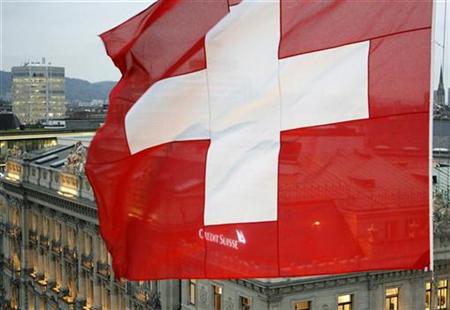By Jaime Ortega.

The result in the referendum held in Switzerland on Sunday will have inevitable consequences for the Swiss economy and change the relationship that this country has with the EU. The extent of the impact and its true impact will depend on how the Swiss legislation fulfills the mandate it has given its citizens by a narrow majority , which calls for the establishment of quotas on immigration from other European countries.
All EU institutions responded yesterday with a similar challenge posed by this country, which has a preferential relationship with the EU through the nearly 100 bilateral message agreement. ” The free movement of people is sacred and cannot accept restrictions on the movement without having an impact on the rest of agreements we have signed,” the spokesman the European Commission, Pia Ahrenkilde said yesterday .
Even more compelling were some foreign ministers yesterday that improvised a discussion on this matter at its regular meeting in Brussels . “The decision will have consequences. Switzerland could not settle with the free circulation of the European economy and at the same time want to have a privileged status within the EU market ,” said Luxembourg responsible, Jean Asselborn .
Behind these words lies an uncertainty that even the European Commission does not know how to clear. The Swiss decision has been taken directly by a tool from the political point of view were no one in the EU can criticize democracy. It is not a given for a populist swerved government, but the mandate they have given the citizens of the country to the current government, has three years to change the current prevailing free movement agreement with the EU.
Gerald Häfner , president of Democracy International, says the Swiss executive has no leeway to turn a deaf ear to this mandate that popular initiatives can only be invalidated if they violate a fundamental right enshrined in the Charter of Human Rights.
Brussels standby
So the European institutions are on standby until Berne gives an indication of how the Brussels will handle this situation. Tomorrow the first meeting which plans will be known thanks to the swish government will explain much of the problems it faces . ” In the short term there will be no major immediate consequences. ‘ll Have to know how to act after Switzerland respond appropriately ,” a community source said .
Whoever it may affect Croatia since is the last country to join the EU that planned to sign with the Swiss country a free movement agreement already enjoyed on all other Member States , but not all in the same degree .
” It seems reasonable that this step will stall when Switzerland makes a definite choice,” said the Commission. Failure to approve this agreement will immediately lock the Erasmus programs and research projects that could benefit the Swiss citizens.
The relations between this country and the European bloc are regulated by bilateral agreements signed that began after 1999 , after Switzerland resigned to join the European Economic Area . The first of these packages are called Bilateral Negotiation I and includes the free movement of persons, elimination of trade barriers , public procurement , agriculture, land and air transport and scientific research.
The European Commission will not change the contents of these agreements (which itself could do the Member States unanimously ) and both parties agreed to sign a guillotine known to establishing that either can break the whole package of this clause agreement if any of these rules apply to the EU or may be applied in Switzerland.
So the rejection of the free movement of people would , immediately, cast a series of cascading effects to the alpine economy as trade barriers or transportation issues.
Penalties and consequences
But besides these sanctions, the consequences can go so far as to decide politically the problems within the EU. In 2004 the EC signed a new package block (Bilateral II ) bilateral agreements covering , among other areas , the country’s participation in Schengen with Switzerland. There are also other issues that are being negotiated right now and can be frozen, such as fiscal transparency and the energy agreement .
So economic reprisals can be as strong as the European Union wants. Switzerland has a strong dependence on the block , home to 430,000 of its citizens. According to the Commission , the country ‘s third largest trading partner and 78% of its imports come from the Member States.
Restrictions on freedom of movement can affect up to one million European citizens living in the Swiss country and 230,000 who cross daily the border to work . And from the point of view of internal organization in the European Union this new twist can spur aspirations to Eurosceptics calling for a revision of the treaties to repatriate powers transferred to Brussels and restrict free movement.
“The implications for the UK are clear,” explained yesterday Mats Persson , director of Open Europe think tank , “If this leads to new restrictions to other areas of trade between the EU and Switzerland and UK many may argue that a system of bilateral agreements to difficult to implement . If , on the other hand , Switzerland is able to renegotiate their relations with the EU while imposing restrictions on free movement , those calling out the European Union will in this case show a clear precedent . “


